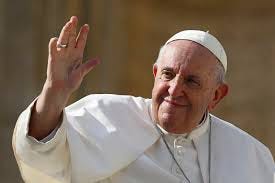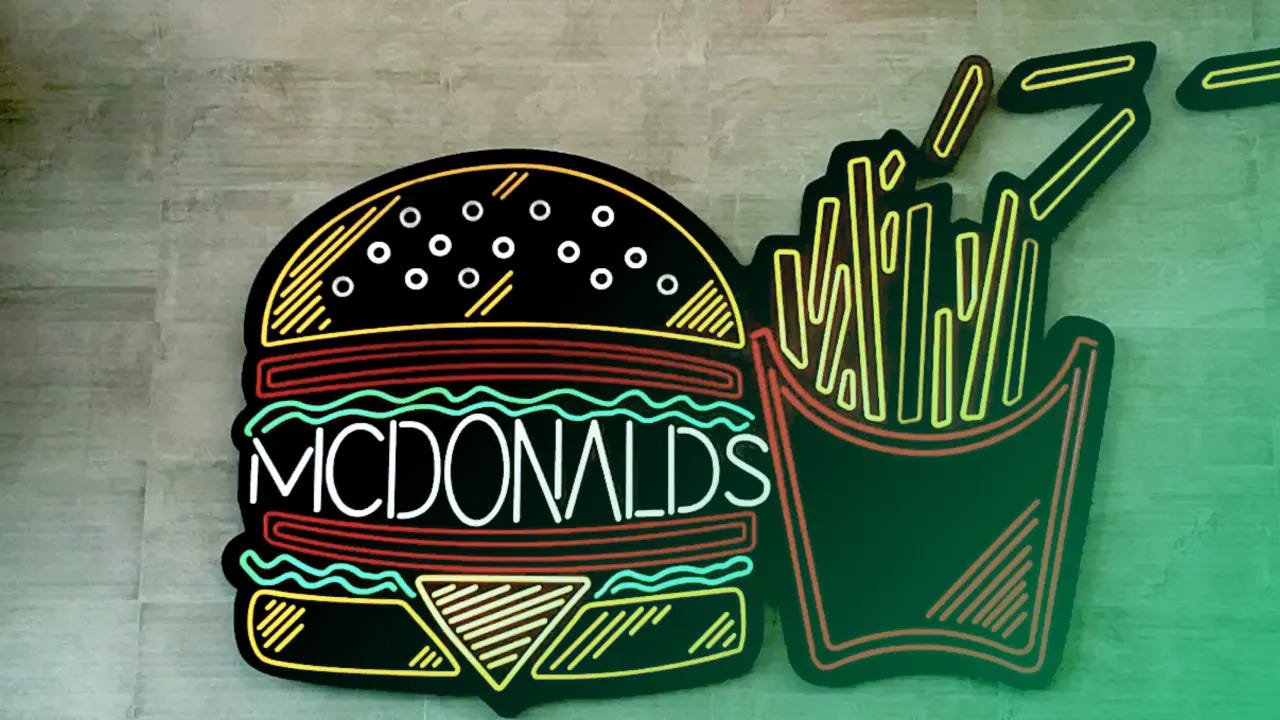After posting everyday for Holy Week I planned to rest today. When I woke up I saw the news of Pope Francis’ death and felt compelled to offer a reflection for a man I found inspiring.
The announcement of Pope Francis’ death hit with the quiet finality of a tolling bell. It wasn’t just the loss of a public figure for me Francis felt like kindred spirit. He was the kind of pope who didn’t just preach the Gospel—he practiced it in public. He rode city buses. He lived in a guesthouse. He washed the feet of prisoners and Muslims. He embraced the disfigured. He met with trans Catholics and blessed same-sex couples—not always with full-throated clarity, but with a pastor’s heart.
He agitated the church in all the right ways. Not by dismantling doctrine, but by asking us to remember what mercy looks like. In doing so, he made space—real space—for people long shut out.
For Francis, inclusion wasn’t a talking point; it was a disruption. He blurred lines that had grown hard and defensive. He allowed divorced and remarried Catholics to receive communion. He elevated voices from the global South. He opened the conversation on women deacons. And each time he did, the pushback was loud, sometimes ugly. Because every act of hospitality he offered came with a question trailing behind it: What happens to identity when you open the door too wide?
Community sounds like a lovely word—until you look at it closely. A circle drawn to create belonging also draws a boundary. It tells you who’s in and who’s out. Too often, that demarcation defines identity so tightly that it becomes a wall instead of a welcome. It’s true in church. It’s true in politics. It’s true in every group that calls itself a “we.”
At the heart of every community is a tension—a spiritual and social see-saw. On one side is hospitality: the radical welcome of the stranger. Not just allowing someone to cross the threshold, but making room at the table for their identity and perspective. It’s a kind of openness that doesn’t ask others to leave themselves at the door.
On the other side is identity: the shared language, values, stories, and practices that give a group its shape. Identity is what holds people together, gives meaning to belonging, draws the lines that say, this is who we are. The more you stretch to make room for outsiders, the more that center shifts. But the tighter you pull the reins on identity, the more brittle it becomes—and the harder it is to make room for anyone new. I say it like this - if you know everyone’s name, you’re dying.
Like the rebellious child who stands in the center, on top of the seesaw while in motion, his papacy was a balancing act, always under pressure. He tried to soften the boundary lines without erasing them. But mercy is threatening when identity feels fragile. His efforts were met with resistance—and at times, vitriol. “We don’t like change” became both a rallying cry and a warning.
But maybe Francis was only following the lead of the first pope.
The story in Acts 11–15 tells of Peter, hungry and half-asleep on a rooftop, when he has a vision. A sheet descends from heaven, filled with unclean animals. “Rise, Peter. Kill and eat,” says the voice. “Absolutely not,” he replies. This happens three times. Each time, Peter resists. Because dietary laws weren’t just about food—they were about who you were. What you ate marked you as part of the people of God.
Then comes the knock at the door: messengers from a Roman centurion, Cornelius, inviting Peter into a Gentile’s home. Another boundary crossed. Peter goes. He listens. He baptizes the whole household.
And the early church goes ballistic.
Peter, in a profound act of radical welcome, shifts the identity and direction of the Jesus movement. In a flash, it becomes something else—no longer a Jewish renewal group, but something more porous, more unpredictable, and far more controversial.
The backlash is immediate. “What were you thinking?” The controversy that erupts is so intense it leads to the first real council of the church. Even before Constantine ever calls bishops to Nicaea, the apostles gather in Jerusalem to sort this one out: Can Gentiles belong? Do they have to convert, follow dietary laws, be circumcised?
Two thousand years later, we’re still see-sawing.
Culturally. Politically. Spiritually.
We argue about who belongs and what must be sacrificed to let them in. It’s the DNA of every identity politics fight and every front in the culture wars. Can the Boy Scouts include girls and still be the Boy Scouts? Can immigrants fully assimilate without losing who they are—or who we are? How far can the Republican Party reach toward bipartisanship before its members get branded as RINOs—Republicans in Name Only?
Can a trans athlete compete without rewriting the meaning of women’s sports? Can universities promote free speech while also creating safe spaces? Can churches bless same-sex couples without undermining their doctrines?
All of it—the shouting, the backlash, the fear—is rooted in the same old tension: How do we make room for others without losing ourselves? How far can welcome go before identity breaks?
Francis didn’t resolve that tension. No pope could. But he lived in it. He leaned into it. He tried to show that a community can stretch without snapping. That identity can be reshaped—not erased—by grace.
But this is difficult work. It is also inescapable work. Every leader, every institution, every brand who tries to build a “we” eventually finds themselves walking that line.
I was reminded of this on a road trip through the wilds of New Mexico. We stopped at a McDonald’s—partly because the kids were hungry, partly because I needed Wi-Fi to sign a contract. They ran off with their Happy Meals to the playground. I opened my laptop in the corner, finished my work, and eventually walked up to the counter to order something for myself.
And I froze.
The menu I’d grown up with—the one I could recite by heart—was nowhere to be found. No Big Mac. No Quarter Pounder. No Filet-O-Fish. In their place: buttermilk ranch chicken on ciabatta, Sriracha chicken and avocado wraps, a Southwest salad with balsamic vinaigrette. Avocado, Sriracha? At McDonald’s?
Even McDonald’s was trying to evolve.
Off in the corner of the menu, with no photos, present more in nostalgia than font size, were a few original items—quietly hanging on and easy to miss among the featured photos.I got the salad. We got back on the road. And somewhere between bites and the stretch of arid desert outside the window, I thought about the church.
This is what it felt like we had to do: evolve to meet a changing landscape, while staying true to the Gospel and our identity. To offer the new—yoga Mass, family Eucharist, alternative liturgies—while also keeping everything we used to do, because the current pledging members don’t want anything to change.
It’s like running two churches on the budget of one, while everyone has strong opinions about both.
Even Jesus lived on the seesaw. “Not one iota, not a dot, will pass from the Law until all is accomplished,” he said (Matthew 5:18). But then he spent the rest of his ministry stretching, straining, and sometimes outright ignoring the purity codes and Sabbath commands that defined religious life.
He healed on the Sabbath (Mark 3:1–6; Luke 13:10–17). He let his disciples pluck grain on the Sabbath (Mark 2:23–28). He ate with unwashed hands (Mark 7:1–5). He dined with tax collectors and sinners (Mark 2:15–17). He touched the untouchables—lepers (Mark 1:40–45), a bleeding woman (Mark 5:25–34), even the dead (Luke 7:11–15).
And over and over again, he put mercy over ritual, people over purity, and grace over gatekeeping. This is the example I think Pope Francis put at the center of his ministry.
Rest in peace, Jorge Mario Bergoglio.
Come and rest, good and faithful servant.
Your work—the dance of mercy and conviction—is the tightrope every community must walk.
It’s the hardest work…and maybe, the holiest.








Thoughtful and thorough. Hope you and I will talk about it more in the future. Spent a large part of this weekend reading through the substack and getting rid of my Trinity notifications. Hope you are all well and safe.
Love to the Thayers, Michael and Amy Stephens
Andy, your series for Holy Week and then today on the dear departed Pope and Community have been excellent! Thanks for jumping into this new role so energetically. You have already become an important voice in Christian thought and deed. Your work reminds me of Richard Rohr, specifically Jesus' Alternative Plan: The sermon on the mount, which I just read (recall I'm an economist, so I'm behind a bit). Where might I learn more about the relationships among economic, political, and religious power in Roman-ruled Jerusalem? Thanks. Len Nichols